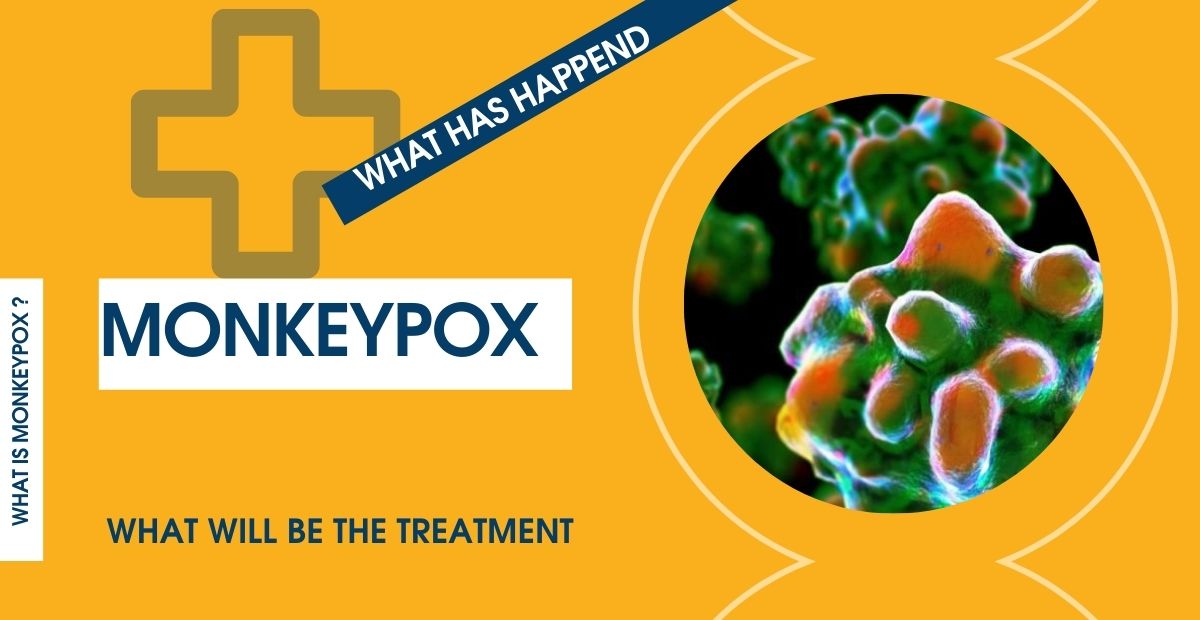WHAT HAS HAPPENED ?
In North Wales, the UK, the Public Health Wales (PHW) confirmed two cases of zoonotic disease — monkeypox, both from the same household.
Health Secretary Matt Hancock, on Thursday (June 10), confirmed the outbreak of monkeypox while addressing MPs at the Health and Social Select Committee in the Parliament.
The monitoring and contact tracing is going on, and the risk to the general public is very low.
“We have worked with multi-agency colleagues, following tried and tested protocols and procedures, and identified all close contacts, Firth said.
WHAT IS MONKEYPOX ?
Monkeypox is a viral zoonosis (a virus transmitted to humans from animals) with symptoms similar to those seen in the past in smallpox patients.
It belongs to the same family of smallpox although less severe than smallpox with lower infection.
Monkeypox is caused by monkeypox virus, a member of the Orth poxvirus genus in the family Poxviridae
Monkeypox occurs primarily in tropical rainforest areas of Central and West Africa and is occasionally exported to other regions.
WHAT ARE THE SYMPTOMS OF MONKEYPOX ?
According to CDC, after 12 days of contracting the virus one can experience fever, headache, muscle aches, and tiredness.
The body starts developing rashes after 3 days of contact, with fever kicking in.
The rashes spread throughout the body and can be extremely itchy, which goes through different stages while healing, forming a scab, and then falls off. The lesions can lead to scarring.
The symptoms and illness last up to 2 to 4 weeks and are reduced on its own.
HOW DOES IT SPREAD ?
The suspected hosts of the virus are rodents, like rope squirrels, dormice, and pouched rats.
It spreads through spill-over hosts such as monkeys and humans. If a person comes in contact with clothing, bedding, respiratory or direct contact of an infected person, they can possibly catch the virus.
Typically, up to a tenth of persons ill with monkeypox may die, with most deaths occurring in younger age groups.
Human monkeypox was first identified in humans in 1970 in the Democratic Republic of the Congo (then known as Zaire) in a 9-year-old boy in a region where smallpox had been eliminated in 1968.
Since then, most cases have been reported from rural, rainforest regions of the Congo Basin, particularly in the Democratic Republic of the Congo, where it is considered to be endemic.
Since 1970, human case of monkeypox have been reported from 11 African countries
Benin, Cameroon, the Central African Republic, the Democratic Republic of the Congo, Gabon, Ivory Coast, Liberia, Nigeria, the Republic of the Congo, Sierra Leone, and South Sudan.
In 2017 Nigeria experienced the largest documented outbreak, 40 years after the last confirmed case.
From the first cases in September 2017 to November 2019, a total of 183 confirmed cases and 9 deaths were recorded in 18 states.
The outbreak occurred primarily in southern parts of the country.
OUTSIDE AFRICA .
The virus has been exported from Africa a few times.
In the spring of 2003, monkeypox cases were confirmed in the United States of America.
Most patients were reported to have had close contact with pet prairie dogs that were infected by African rodents that had been imported into the country from Ghana.
Monkeypox was carried to Israel in September 2018, to the United Kingdom in December 2019 and to Singapore in May 2019 by travellers from Nigeria who fell ill with monkeypox after arrival.
MONKEYPOX TREATMENT
As of now, the Centers for Disease Control and Prevention (CDC) states that there is no specific cure for the illness,
However, it can be controlled with smallpox vaccine cidofovir, ST-246, and vaccinia immune globulin (VIG).
Vaccination against smallpox with vaccinia vaccine was demonstrated through several observational studies to be about 85° effective in preventing monkeypox.
On 25 May 2021 the United Kingdom of Great Britain and Northern Ireland notified the WHO of one laboratory-confirmed case of monkeypox. The patient arrived in the United Kingdom on 8 May 2021. Prior to travel, the patient had lived and worked in Delta State, Nigeria.
On arrival in the United Kingdom, the patient remained in quarantine with family due to COVID-19 restrictions. On 10 May, the patient developed a rash, beginning on the face. The patient remained in self-isolation for a further ten days and sought medical care for relief of symptoms. The patient was admitted to a referral hospital on 23 May. Skin lesion samples were received at the Public Health England Rare and Imported Pathogens Laboratory on 24 May. The West African clade of monkeypox virus was confirmed by polymerase chain reaction (PCR) on 25 May.
On 29 May, a family member with whom the patient quarantined developed lesions clinically compatible with monkeypox and was immediately isolated in an appropriate facility. Monkeypox was confirmed on 31 May. Both patients are stable and recovering.


… [Trackback]
[…] Find More to that Topic: eklabhyaclasses.com/blog/monkeypox/ […]
… [Trackback]
[…] Find More on that Topic: eklabhyaclasses.com/blog/monkeypox/ […]
… [Trackback]
[…] Find More Info here to that Topic: eklabhyaclasses.com/blog/monkeypox/ […]
… [Trackback]
[…] Information to that Topic: eklabhyaclasses.com/blog/monkeypox/ […]